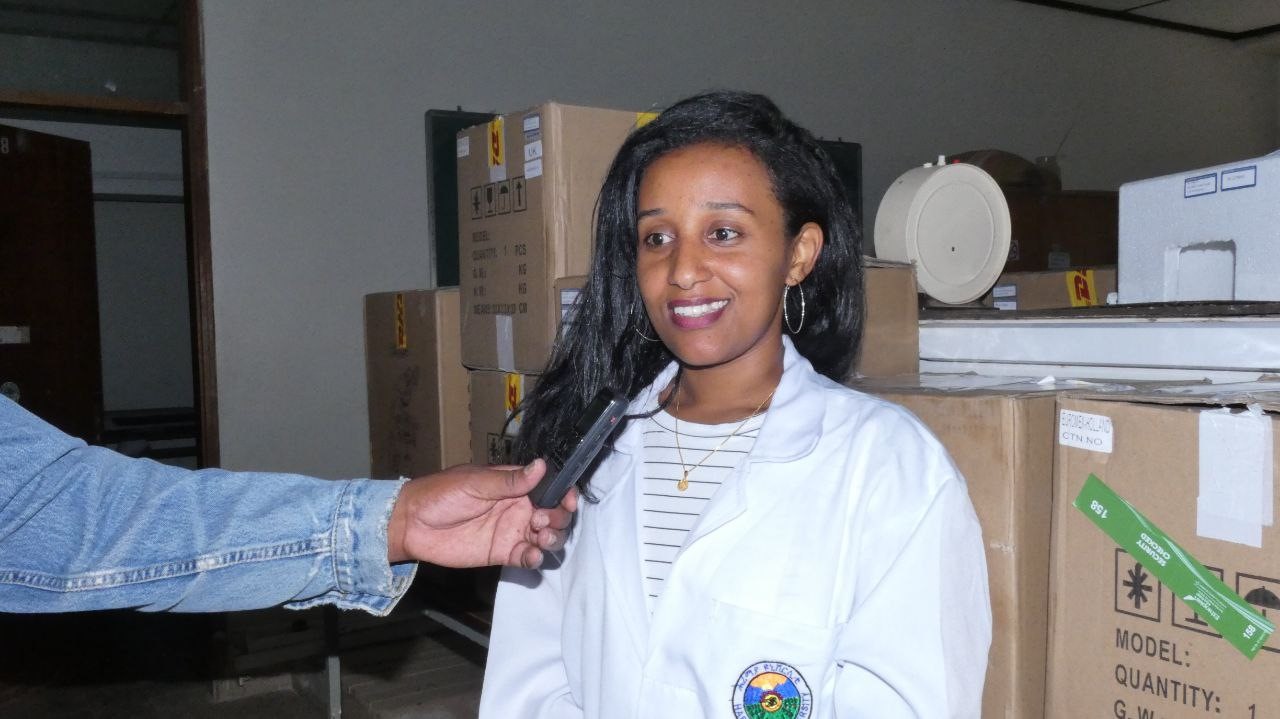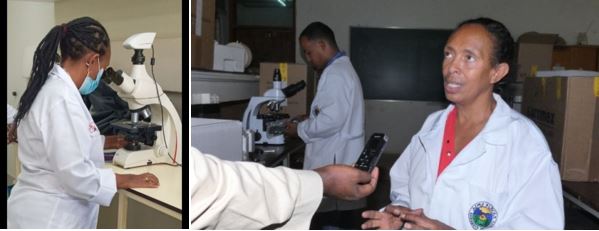Haramaya University Conducts the Annual Workshop
The 39th Annual Research Extension, Community Engagement Review Workshop was conducted from June 2-4, 2022 at Haramaya University’s Afran Kallo Hall on the Main Campus under the theme “Enhancing the Alignment of Research and Community Engagement Programs at Haramaya University to Address Grand Societal Challenges.”
![]()
Community representatives, representatives of government and non-government organizations, researchers from HU and other universities, government officials, and the University Management and Board members participated in the event.
![]()
The first day was ‘Community Day’ where grassroots level activities involving and directly benefiting rural and urban communities were presented, exhibited, and discussed to solicit feedback on performance and future priority focus areas of research extension and community engagement.
The Second (June 3) and Third (June 4) days were allocated for technical and scientific review of programs and projects.
![]()
Haramaya University’s Vice President for Research Affairs, Dr. Tesfaye Lemma, and Vice President for Community Engagement and Enterprise Development, Dr. Yesihak Yusuf, made welcoming remarks and opening speech, respectively. Both extended warm welcome to the community representatives and encouraged them to actively participate in evaluating the performance of extension and community engagement activities implemented in 2014 fiscal year and in setting priorities for the coming years.
![]()
The technical review of completed 48 research projects took place on June 3 and 4, 2022. The review began with welcome and opening speech made by the Vice President for Research Affairs, Dr. Tesfaye Lemma, who warmly welcomed the guests and the participants.
In his speech, Dr. Tesfaye said that the purpose of the research program at HU is to provide context-relevant and sustainable solutions to local and national development challenges through conducting impactful applied and basic research with a special focus on agriculture, health, tourism, mining, and applied sciences.
![]()
Research on indigenous knowledge (both hard and soft) is at its nascent stage but getting growing attention as a crosscutting issue, he indicated.
The recent establishment of Institute of Gada Studies as well as Institute of Peace and Development at HU is expected to take research on indigenous knowledge and institutions to the next higher level, it was highlighted.
![]()
Tesfaye outlined major activities implemented in the budget year and the key performance of the research and extension programs of the University. HU forged new partnerships and was able to mobilize 88 million Birr in the form of external grants; researchers published 1015 articles in peer-reviewed journal of which 696 were published in Web of Science, PubMed and/or Scopus indexed journals; the extension service reached more than 18, 000 households with new technologies and management practices in 23 woredas in East Hararghe, West Hararghe, Harari Regional State, and Dire Dawa Administration; provided technical and financial support to cluster seed multiplication for irrigated wheat production in Babile and Gola Oda woredas and supported irrigation-based wheat grain production in 17 woredas in East Hararghe Zone; provided services to farmers’ cooperatives, research centers and other seed producers that enabled them to produce 5156 quintals of certified seeds of maize, sorghum, wheat, haricot bean and mungbean; developed proto-type technologies and two new potato varieties; and made one additional research station at Barkale site (covering 30 hectares) functional, with two newly constructed water wells, to be used for research in citrus fruits and irrigated vegetables.
![]()
Dr. Mandefro Nigussie, the Chief Executive Officer of Ethiopian Agricultural Transformation Institute, made a keynote speech on aligning research and outreach activities of HU with local, regional, national and global agenda with special emphasis on agriculture.
He underlined the special role HU is expected to play in implementing the agricultural transformation agenda of Oromia Regional State as coordinator of the eastern cluster.
![]()
The workshop was concluded after a general discussion was held on the third day regarding the strengths and areas of improvement to enhance relevance and socio-economic impacts of the research and outreach activities of HU.
It was emphasized, among other things, that the University should continue its endeavors related to strengthening human capacity, upgrading and modernizing research lab and facilities, enhancing research results dissemination and commercialization, and exploring and facilitating the utilization of untapped potential of East Hararghe Zone, including irrigated agriculture and livestock resources development.
![]()
Professor Mengistu Urge, Vice President for Academic Affairs, made closing remarks. In his remarks, Professor Mengistu emphasized the commendable job done by Haramaya University’s research and community engagement programs as well as the need to work on the feedback, critical comments and suggestions made by the community representatives, HU researchers and the other participants.
![]()

































































































